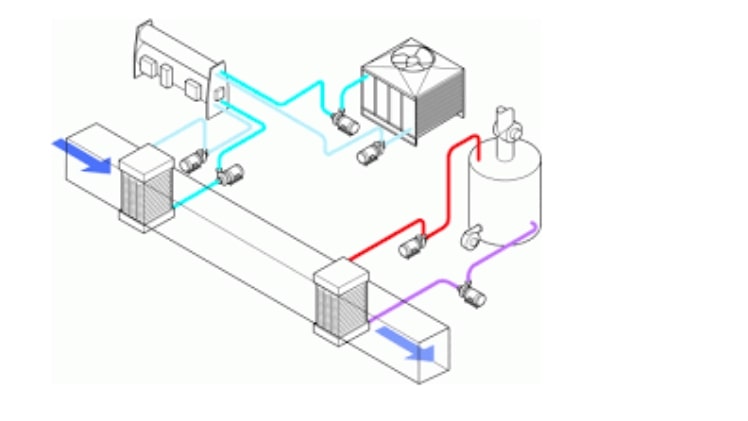- HVAC is a term that is frequently used by people, most have an idea of what it entails; but on the other hand what exactly does it actually mean,
What is HVAC?
HVAC is an acronym for Heating, Ventilation and Air Conditioning.
It refers to the different set-ups/systems that are enabled to ensure that there is an efficient free flow of air between indoor and outdoor areas.
These systems refine and cleanse the air within a building so as to conserve the optimal humidity levels and try to eliminate any sort of unwanted health issues during winter and the summer just for your comfort.
When it comes to investing in a quality HVAC system, you want nothing but the best. That’s where Green Street HVAC ac repair services come in. They offer top-notch solutions to keep your AC system running efficiently and your indoor environment comfortable year-round. Discover their range of services and expertise by visiting their website. Don’t settle for anything less when it comes to your HVAC investment; trust the professionals at Green Street HVAC to keep you cool and comfortable.
Typical HVAC lifespans
Even though Most HVAC systems last from 15to25years on average, Regular Maintenance and repairs also come in handy to ensure that your boilers, furnaces, heat pumps and air conditioners serve you for a few more years.
Below are the typical life spans for some of the frequently used HVAC equipment’s;
- Furnaces – Gas Furnaces can last 20 to 30 years if properly maintained. Normally a furnace is replaced when the heat exchanger has a leakage as it is one of the most scathing and costly element.
- Heat Pumps – Heat Pumps can last up to 20 years (15 years on average) depending on the usage frequency. If used in coastal areas they tend to fail prematurely often, with a typical life span of between 7 to 12 years. They are normally replaced whenever the compressor fails or the condenser obtains corrosion and leakage.
- Air Conditioners – the average AC unit will last roughly 10 to 15 years. In coastal regions, they commonly last only 7 to 12 years due to saltiness exposure.Just like the Heat Pumps, AC’s are usually replaced when the compressor fails or the condenser begins to obtain consequential corrosion and leaks.
- The price of an AC tends to vary according to the size, operation as well as the company from where it is manufactured.
- Boilers – Boilers tend to have an average lifespan of 20 to 35 years. They are normally replaced when there is a leakage in the heat exchanger.
- Ductless Mini-splits – Ductless Mini-splits do provide both heating and cooling effects with a typical life span of 10 to 30 years except in coastal regions.
Factors That Affect HVAC life span
The following can shorten the lifespan of an HVAC equipment;
- Installation in the coastal regions which tend to have salty environments
- Misuse of the equipment, e.g. heating or cooling when the windows and doors are not shut
- Poor maintenance practices
- Inappropriate installation procedures
- Over sizing or under sizing of the system
- Poor quality/ defective equipment’s
NB:With preventive maintenance plans, HVAC systems can last longer as the small issues are addressed before its too late.
Nowadays HVAC components are available at various hvac companies in Kenya.
The purpose of an HVAC system is more than just improve indoor air quality and provide comfort for everyone inside a building.
But it does also help make you feel warm and cozy during the winter as well as feeling cool and fresh during the summer.

